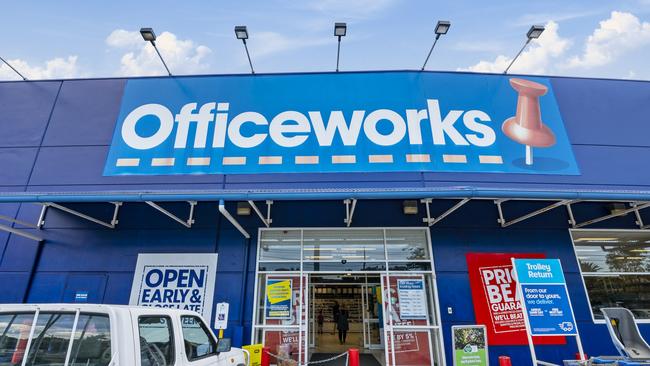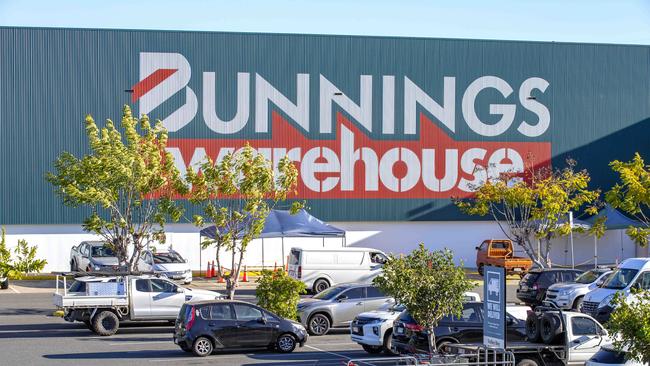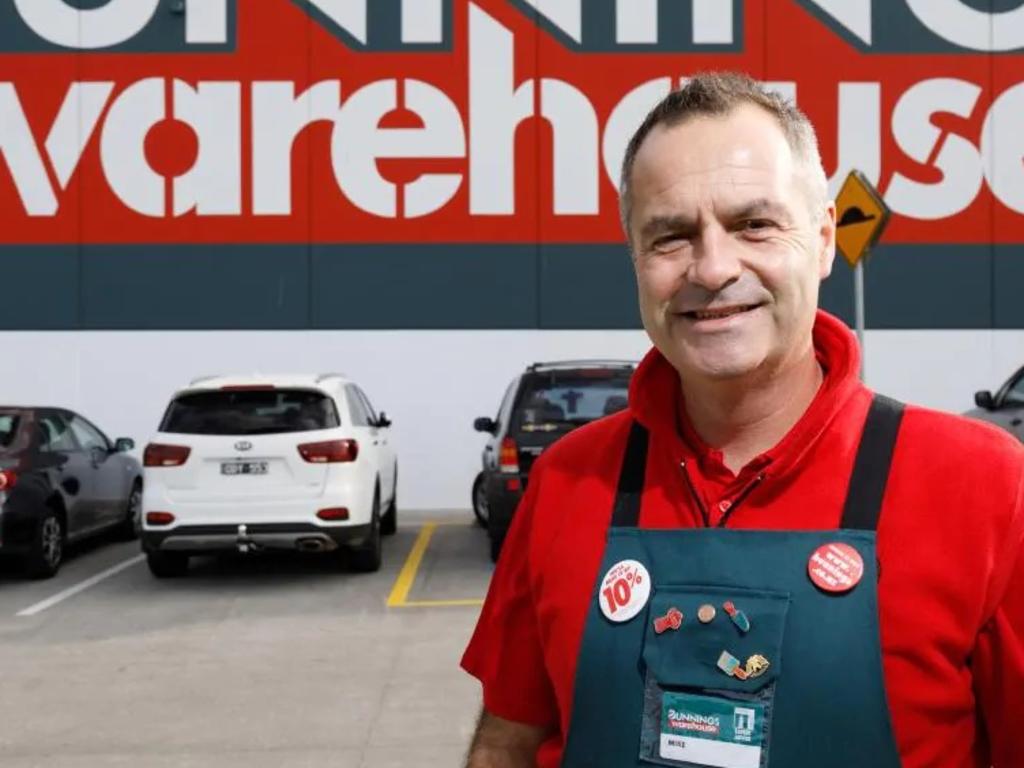Wesfarmers CEO Rob Scott says extra taxes will harm economic recovery
Rather than using payroll tax to prop up state finances, governments should be cutting it to give workers a pay rise, Wesfarmers’ chief says.

Wesfarmers chief executive Rob Scott has fired a warning shot across the bows of state governments looking to dig themselves out of debt by imposing punitive taxes on business, arguing tax and regulation are a threat to Australia’s economic recovery from Covid-19.
Mr Scott, one of the nation’s most powerful CEOs who oversees a $60bn conglomerate investing across retail, chemicals and energy, said Australia had much to be grateful for as its economic and job growth led the world but could be at risk from forces outside of Covid mutations and vaccine rollouts.
“I think this time around in Victoria we are seeing how economically damaging harsh lockdowns are and also how expensive they are not just for business and households, but for government. And the risk we are seeing is if governments were to introduce new taxes that are particularly punitive and work against employment such as payroll tax,” Mr Scott said.
Mr Scott did not refer specifically to the Victorian government, which in its budget papers last month announced it would hit up businesses with more than $10 million in national wages with a levy through a payroll tax surcharge to help fund investment in mental health.
However, he did cite payroll tax as both a business investment and job destroyer that was a threat to Australia’s recovery from the pandemic. His comments followed the Wesfarmers strategy day on Thursday, where he also revealed some of his retail chains reported negative growth for particular months.
“(Payroll tax) then really stalls the recovery and puts more pressure on business at a time when we really need to get people back in work and back in business,” he told The Australian.
“What is fairly well understood across government is that payroll taxes are a very inefficient tax, but it’s also an easy tax, an easy tax to administer. But unfortunately having a tax that is applied to people’s wages and people’s jobs works against the idea of trying to create jobs and create wage growth.
“One of the best ways to achieve wage growth would be to reduce payroll tax.”
Mr Scott told investors at the Wesfarmers strategy day, where the bosses of his key divisions such as Bunnings, Officeworks, Kmart and industrial safety also presented updates, that these punitive taxes as well as uncertainties around the pandemic were all a threat to Australia’s rebound.
“Looking forward, Australia’s economic recovery and employment growth continues to lead the world and there are reasons to be positive about the outlook for household income and business activity,” Mr Scott said.
“However, in the shorter term there remains significant risk and uncertainties – the potential for future lockdowns, speed of community vaccination, further Covid mutations and the risk of punitive taxes and regulations that dampen job creation and investment.”
The volatility running through the economy was evident in the performance of key Wesfarmers businesses in the last few months, as shown in the strategy day and update when Mr Scott detailed some moderation in sales momentum compared to the peaks in 2020 and for some months actual negative growth.

“Customer demand has remained resilient, but year-on-year growth has generally moderated and been negative in some months for some businesses, due to elevated activity in the prior year,” Mr Scott told investors.
And as Covid-19 restrictions were eased consumers had returned to the shops, boosting in-store traffic but at the cost of online.
“Online growth has moderated as customer traffic to stores has increased, and online penetration has reduced but remains above pre-COVID levels.”
Wesfarmers did not declare any new capital management measures that could see some of its cash on hand of $871 million and strong balance sheet generate a special dividend or capital return for shareholders, but chief financial officer Anthony Gianotti in his presentation did dangle some hope.

“We continue to evaluate options for right-sizing the balance sheet and getting capital back to shareholders … if we do return capital to shareholders (we will look) at what is the best way of doing that.”
The company said there would be an accelerated investment in digital transformation to build out improved digital tools across the conglomerate, while fiscal 2021 net capital expenditure of $650 million to $700 million is expected, subject to net property investment and inclusive of the conversion of Target stores to Kmart stores and purchase of long lead items for the development of the Mt Holland lithium project.
At Bunnings, its managing director Michael Schneider unveiled plans to expand its recently acquired South Australian power tools business Adelaide Tools into an Australian and New Zealand chain that will open its first store in Western Australia soon and then grow to as many as 75 stores in the next three to five years.
He also signalled Bunnings could grow into other similar or adjacent industries to hardware through bolt-on acquisitions such as its recent purchase of Beaumont Tiles, with the hardware giant keen on all aspects of the home from its foundation and construction to fitting it out.
“We are always interested in categories where we are not able to service customers effectively through the Bunnings format,” Mr Schneider said.
The hardware group would transition to 100 per cent renewable electricity by 2025 and it has committed to net zero Scope 1 and 2 emissions by 2030. It said solar was currently installed at 74 sites, and planned to expand to over 100 sites by June 2022
Wesfarmers said in its presentation that Target is now a smaller and simpler business, with a single large format network of 142 stores and a rationalised supply chain.
Officeworks reported in its presentation for the strategy day that the current accessible market for its retail chain was $28 billion, of which it has a 10 per cent stake, with a potential accessible market of $56 billion.
Shares in Wesfarmers ended down $1.17, or 2.1 per cent, at $55.11.








To join the conversation, please log in. Don't have an account? Register
Join the conversation, you are commenting as Logout